- Home
- Tony Parsons
One For My Baby Page 22
One For My Baby Read online
Page 22
She is seated at the head of a table covered with plates of what looks like uncooked dumplings, or triangular ravioli, which she eyes dubiously, as if hoping to spot something she recognises, such as a fish finger or a custard cream. William and Diana both bring her green tea, which she tastes carefully, before giving a jaunty thumbs up.
‘Tastes a bit like Lemsip,’ she says.
We have chicken for dinner. Chicken and steamed rice and some dishes that I can’t even look at—silkworms, blackened in the pan, full of their white mushy meat—and food that I love, like little sausages that look as though they should be on the end of a cocktail stick.
I sit next to Joyce and she keeps dropping bits of chicken into my rice bowl, making me feel like a baby bird having worms dropped into its nest. Olga says she is not so hungry because she had something to eat at the Eamon de Valera, although I think that she is just a bit embarrassed by her chopstick technique. There is really no need for her to feel bad, because the Changs assume that every gweilo needs western cutlery. My nan can’t use chopsticks either, so she saws away at her tiny piece of chicken with a knife and fork.
‘My husband was fond of red meat,’ she tells Joyce. ‘Bloody, he liked it. Just wipe the cow’s arse and bring it to the table, he used to say. He was a bit of a joker.’
After dinner we make more dumplings to eat at midnight. They look like what Yumi and Hiroko call gyoza, but Joyce tells us they are called jiaozi. We clear the table and make plates and plates of jiaozi dumplings, hand rolling the flour, stuffing in the pork filling, sealing it up and handing it to Joyce and Harold to fry.
Olga can’t quite get the hang of making jiaozi, so she sits in a corner, smoking a cigarette, smiling at our efforts. George tells us that three of the dumplings are very special. One contains sugar, one contains a coin and one contains vegetable.
‘For love, for fortune, for intelligence,’ he says.
We eat the jiaozi as the clock chimes midnight and the Year of the Tiger makes way for the Year of the Rabbit.
Diana gets the jiaozi that will bring her love.
Her father Harold gets the jiaozi that will bring him fortune.
And I get the jiaozi that will bring me intelligence.
So everything works out perfectly.
‘Like putting a sixpence in a Christmas pud,’ says my nan. ‘They don’t do that any more, do they?’
Then it is time to go.
‘Kung hay fat choi,’ I tell George as we are leaving, sticking out my hand. He takes it, although he is not a great hand shaker, and I am surprised, as always, to feel the infinite softness of his grip. Behind us we can hear my nan and my mum and Olga saying goodbye to the rest of the Changs. Outside it is past midnight, a freezing February in London. The red lanterns in the Shanghai Dragon burn like fire.
‘Kung hay fat choi,’ George says. ‘How is back?’
‘My back’s fine now.’
‘No painkiller, okay?’
‘Okay, George.’
‘Not so good, the painkiller. Sometimes best to just feel the pain. Sometimes the healthiest way. The way to get better.’
I can’t explain why, but I realise that George is not really talking about my back.
He is talking about Olga.
And I suddenly see that bringing her tonight was not the best idea that I ever had. Olga has been made welcome by the Changs, and she has made every effort to enjoy the food and be enchanted by the rituals of Spring Festival, but it was all a bit forced, all a bit of a strain.
I know that in all honesty she would probably have had a better time in the bar of the Eamon de Valera with some disco hunk with a pierced knob and the complete works of Robbie Williams.
She didn’t enjoy Chinese New Year at the Shanghai Dragon the way that, say, Hiroko would have enjoyed it.
I see for the first time that—despite her endless legs, her lovely face and her enviable youth—Olga is not the girl for me and I am not the man for her.
And armed with that knowledge, we go straight back to my place and make our baby.
twenty-six
They have had some kind of argument.
Jackie and Plum come into my flat and the silence between them crackles with resentment. Jackie goes straight over to the table where we work, moving surprisingly fast in those leopard-print boots, unbuttoning her raincoat with barely contained fury. Plum lingers in the middle of the room, staring morosely at her scuffed trainers, her fringe dangling in front of her face, hiding her from the wicked world.
And then I say something stupid.
‘What’s wrong?’
Jackie whirls on me.
‘What’s wrong? What’s wrong? Madam here gave her dinner money away, didn’t you? And her bus money. And her bus money, if you please.’
Plum peers up through her greasy brown veil, her face collapsing with agony.
‘I didn’t.’
‘Don’t lie to me.’ Jackie takes a step towards her daughter, and for a second I am afraid that she is going to hit her. The girl fearfully retreats a couple of paces. ‘She lets them walk all over her. Those bloody kids at her school.’
‘I didn’t. I lost it. I told you.’
‘Do you know how long it took me to earn that money? Do you have any idea how many floors I had to clean to get that money? That money you gave away? Do you?’
Plum starts to cry. These terrible, bitter tears running down her podgy young face.
‘I lost it. I did. Really I did.’
‘She lets them walk all over her. If they tried it with me, I would have killed them.’
‘But I’m not you, am I?’ Plum says, and it sounds exactly like something I might say to my father. I feel a stirring of sympathy for this awkward child. ‘And I lost it.’
This feels like it could go on forever. I step between them, like a UN representative mediating between the Israelis and the Palestinians.
‘Jackie, what were we doing last week?’
‘Studying emotions in a dramatic extract,’ she hisses, still staring angrily at her daughter. ‘From The Heart is a Lonely pigging Hunter.’
‘Okay. Well, can you get on with that while I take Plum round to my grandmother’s place?’
They both look at me.
‘Your grandmother’s place?’
‘My nan would be glad of the company. She’s going back to the hospital next week.’
‘What’s wrong with her?’ says Plum.
‘She’s getting the results of the biopsy they took to find out what caused all that fluid on her lungs. She’s a bit nervous.’
‘Okay,’ says Plum.
‘Fine,’ says Jackie.
So while Jackie takes out her copy of The Heart is a Lonely Hunter and studies emotions in a dramatic extract, I take Plum round to my nan’s. We drive in silence for a while, as Plum flicks through the radio stations looking for something that interests her. Eventually she switches it off with a sigh.
‘Who’s bullying you at school?’
She shoots me a look. ‘Nobody.’
‘Nobody?’
She stares out of the window as the shabby end of north London drifts by. Letting agents and old brown pubs, kebab shops and junk stores.
‘You don’t know them.’
‘I probably know the type. Want to talk about it?’
‘What good would it do?’
‘Are they boys or girls?’
A moment’s silence. ‘Both.’
‘What are their names?’
She smiles at me. It’s not friendly. ‘You going to come to my school and give them a detention?’
‘Sometimes it helps talking about things. That’s all.’
She takes a breath.
‘The girl’s called Sadie. The boy’s called Mick. They’re big. The way some kids are big, you know?’
‘I know.’
‘He shaves. She’s got tits. They’re only my age. And they’ve got this little gang. All the cool kids. The hard kids. The kids that h
ave been having sex since the first year. And they hate me. They fucking hate me, don’t they? I can’t walk down a corridor without someone saying something. Fatty Day. Fat Slag. Who ate all the pies? Every single day for two years. Since the very first day of the very first year. They think it’s funny.’
We pull up outside my nan’s block of flats. A small white block containing all those little old ladies living on their own. I can’t imagine Plum at that age. It feels like her teenage years are going to drag on forever.
‘How much did they take?’
‘I told you—I lost it.’
‘How much?’
‘Sixty pounds.’
‘Jesus. You must eat a lot of school dinners.’ I immediately regret it.
‘Yeah, that’s right. That’s why I’m so fat. Didn’t you know?’
‘Come on. That’s not what I meant.’
‘I’ve got a problem with my glands, okay?’
‘Okay. Why did you have so much money on you?’
‘Dinner money for the week. Bus money for the month. And my savings.’
‘Your savings?’
‘I was going to buy a book.’
‘A book?’
‘A book called Smell the Fear, He-bitch. It’s a hardback. They don’t come cheap, mate.’
‘Smell the Fear, He-bitch? Is it the new Salman Rushdie?’
‘Who’s Salmon Rushdie?’
‘Never mind.’
‘Smell the Fear, He-bitch is the new book by The Slab. He’s a wrestler.’
‘I remember. Sports-entertainment. So you lost all this money. How did you manage that?’
‘I thought it might make them like me but—’ She stops, laughs, shakes her head. ‘Tricked me, didn’t you? Typical teacher.’
‘It takes your mum a long time to earn sixty pounds.’
‘Don’t you start.’ She is staring down at her hands. Her fingernails are chewed to the quick and there it is again—a surge of sympathy for this sad, lonely child. ‘I realise it takes her a long time to earn that money. I do know that. I’m not a complete idiot.’
I take out my wallet and pull out three £20 notes. ‘In fact, it takes anyone a long time to earn that kind of money.’ I hold out the notes. ‘Be more careful next time, okay?’
She looks at the money, not taking it. ‘What’s this for?’
‘You’ve been good with my nan. I appreciate that. So—just take it, okay?’
‘I don’t need paying. I like her.’
‘I know you do. And she likes you. I just don’t want you and your mum to fall out over a couple of creeps like Mick and Sadie.’
‘How do you know they’re creeps?’
‘I’ve met them.’
‘That’s a lie. You never met them.’
‘Their kind. I met their kind. Lots of times. When I was a teacher. And when I was a kid.’
She looks at the money. Then she takes it. ‘Thanks, Alfie.’
‘Don’t mention it. And don’t tell your mother. Shall we go up and see the old girl?’
‘Okay.’
After ringing my nan’s bell we wait patiently as her carpet slippers shuffle slowly towards the door. I turn to face Plum. She is still hiding behind her fringe, but looking a little happier.
‘What is it with you and The Slab anyway?’
‘The Slab?’
‘Yeah. I don’t get it.’
‘What do you think I should be into? Some dopey girl singer with long hair and an acoustic guitar going boo-hoo-hoo, nobody understands me?’
‘Something like that. Why does The Slab mean so much to you?’
‘Isn’t it obvious? The Slab doesn’t take shit from anyone.’
* * *
Olga calls me just before midnight and tells me she has to see me.
I am just about to clean my teeth and go to bed, so I suggest tomorrow at morning break, in the coffee shop across from Churchill’s. She says it has to be now, and something about her voice—how quiet it is, how full of an emotion that I can’t quite place—stops me from arguing with her. I get dressed and take a cab down to the Eamon de Valera.
We sit at a corner table surrounded by the dregs of a dozen glasses, and I expect her to tell me that she has had a conversation with Lisa Smith about me, or that she has some kind of visa problem, or that her boyfriend is coming to London. But it is worse than all of that.
‘I’m late.’
‘Late?’
‘My period hasn’t come.’
‘Maybe it’s—I don’t know—can’t it be different every month?’
‘I took a test,’ she says, and it occurs to me how much of the language of procreation resembles the lexicon of student life. Being late with something, taking tests, getting your results. But what’s a pass and what’s a failure? That’s the question. ‘One of those tests that you buy in a chemist.’
I say nothing. I am waiting, unable to really believe that this thing is happening at this time, with this girl. This woman. And not my wife.
Rose and I tried for this moment and it never happened. We really tried. It was never-ending. I remember the constant cycle of disappointment and her crippling period pains, I remember being asked to produce an erection every time the ovulation arrived. We laughed about it—‘You’re performing tonight, Alfie, so no mucking about with yourself in the shower’—but it was slowly breaking our hearts, this longing for a baby, a baby who would complete our world.
Is it that the people who want a baby don’t get it, and the ones who don’t want a baby do? Is that the way it works? Rose and I tried for almost a year. It didn’t happen for us. It will never happen for us now.
‘I’m pregnant,’ Olga says, this woman who is not Rose, with a little laugh that signals that she feels the same disbelief as me. ‘I’m going to have a baby.’
We let the weight of it sink in. They are clearing the glasses all around us. Someone is shouting for last orders.
‘A baby. God, Olga.’
‘I know. I know.’
On Chinese New Year Olga and I returned to my flat and discovered that the Hong Kong souvenir sugar bowl where I kept my supply of Gossamer Wings was empty. And we decided to take a risk. No, that’s not true. It wasn’t as rational as that. We just didn’t think about it. We did not think.
She starts to cry a bit and I reach out and take her hands. They are sticky with beer, for she has been working tonight. She works every night.
‘I’ll stick by you,’ I say, unable to come up with anything better than the cliche’. ‘We’re in this together, okay? This is our baby.’
She pulls her hands away from me.
‘Are you crazy? I’m not having a baby with you. I’m twenty. You’re nearly forty. You’re just a teacher in some little language school. I’ve got my life ahead of me. My boyfriend would kill me.’
So after that we do not discuss the baby.
We only talk about the abortion.
* * *
Later I take her back to the flat she shares with three other Russians in a part of south London that gentrification passed by, a neighbourhood of burnt-out cars and distant cries and sprawling estates.
When I try to kiss her cheek, she turns her face away. After deciding what we are going to do, or rather what we are not going to do—we are not going to have this baby—every gesture of affection or support seems inadequate, laughable, pathetic.
She disappears into her block of flats. We have not even said goodnight.
At the moment of this small miracle, this baby she has growing inside her, we have never seemed more like total strangers.
First Rose, now this baby. I am tired of thinking about it all, too ashamed for words, sick to my stomach with guilt.
I feel like I am getting away with murder.
twenty-seven
I can see why she doesn’t want to have a baby with me. I am not so stupid that I can’t see that. But as we make the arrangements for the termination, which seem as cold and clinical as arranging t
o have a car taken in for its annual service, I can’t shake the feeling that we have somehow contrived to turn a blessing into a curse.
It’s not a baby, I keep telling myself. Not a real baby. Not yet. It never will be. But the problem is, I don’t believe it. I don’t believe it for a second.
It would be a baby, if there was any space for a baby in our selfish, stupid, fucked-up lives. It would be a baby if we just left it alone. That’s not much to ask for, is it? Just to be left alone. Then it would be a little boy or a little girl. If we weren’t making these arrangements to get rid of it.
But that’s what we are doing. Getting rid of it. I can’t believe—I just can’t believe, although I wish I could—that what we are about to do is just another kind of contraception. That what we are going to do is no different from buying a packet of Gossamer Wing condoms. This is not contraception. It’s too late for all that.
We have brought a life into being that nobody wants. Olga doesn’t want it. I try to want it, I really do. I try to want our baby, but it is too much for me when I contemplate bringing up the baby by myself.
I see myself feeding the baby its bottle, taking it for a walk in the park, giving it a go on the swings. Is that what you do with babies? Or does that come a bit later? The truth is I would not know where to start. Bring up a child? I can hardly look after myself.
We have an appointment at the clinic. Olga has to talk to a doctor to explain why this baby’s existence is impossible. It doesn’t take long. What was I expecting? Tears, anger, emotional pleas on behalf of the unborn baby? I would have liked some of that. I would have liked to have heard someone standing up for the baby. I would have appreciated hearing someone say—don’t do it. Don’t get rid of this baby.
But the forms are signed, a bill is presented and I put it on my credit card. It’s that casual, that cruel, that simple.
Killing your unborn baby?
That’ll do nicely, sir.
I know it’s the only way. Isn’t it? Don’t I? But it still feels like we are stealing something from someone. Stealing a life. I try to support Olga at this difficult and painful time, I really do. I assure her that everything is going to be all right, yet it’s suddenly as if we have never met.

 Long Gone the Corroboree
Long Gone the Corroboree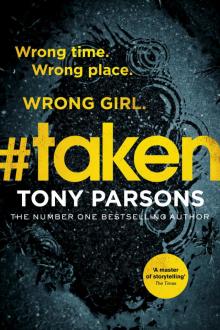 #taken
#taken The Family Way
The Family Way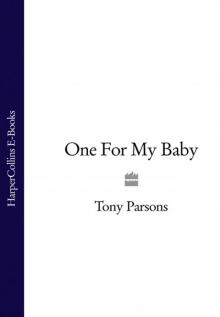 One For My Baby
One For My Baby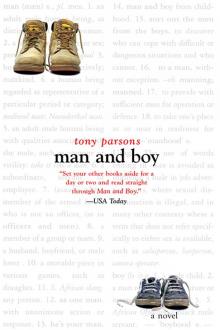 Man and Boy
Man and Boy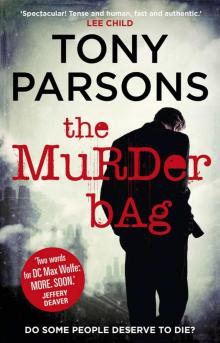 The Murder Bag
The Murder Bag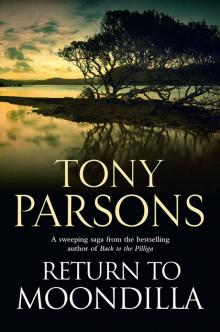 Return to Moondilla
Return to Moondilla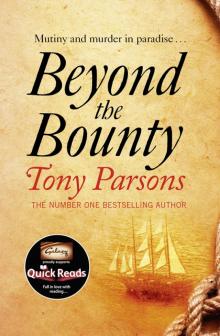 Beyond the Bounty
Beyond the Bounty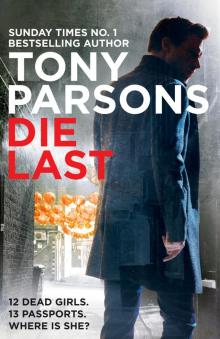 Die Last
Die Last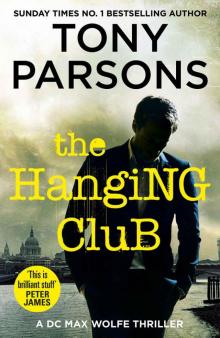 The Hanging Club (DC Max Wolfe)
The Hanging Club (DC Max Wolfe)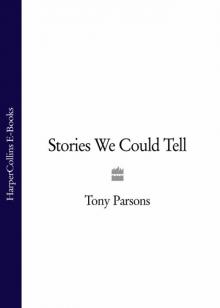 Stories We Could Tell
Stories We Could Tell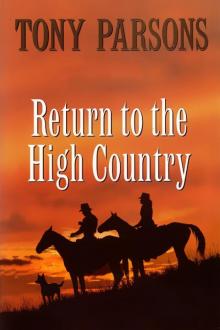 Return to the High Country
Return to the High Country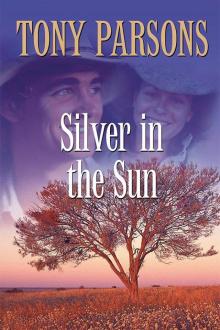 Silver in the Sun
Silver in the Sun My Favourite Wife
My Favourite Wife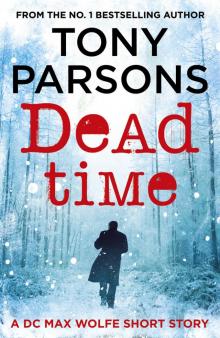 Dead Time
Dead Time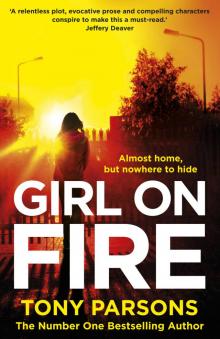 Girl On Fire
Girl On Fire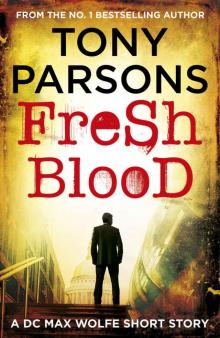 Max Wolfe 02.5 - Fresh Blood
Max Wolfe 02.5 - Fresh Blood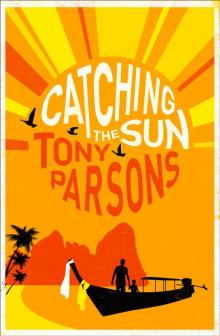 Catching the Sun
Catching the Sun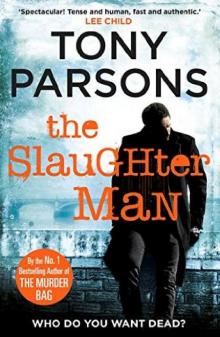 The Slaughter Man
The Slaughter Man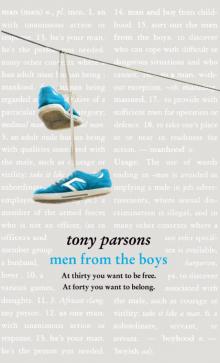 Men from the Boys
Men from the Boys Man and Wife
Man and Wife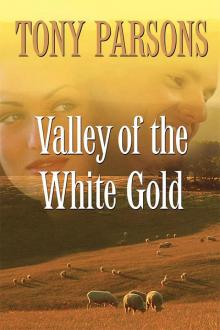 Valley of the White Gold
Valley of the White Gold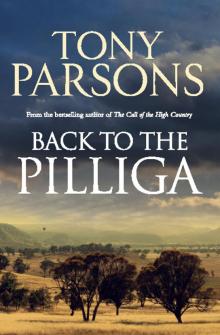 Back to the Pilliga
Back to the Pilliga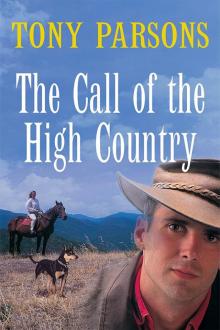 The Call of the High Country
The Call of the High Country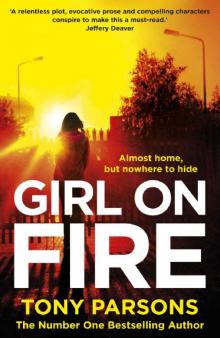 Girl On Fire_DC Max Wolfe
Girl On Fire_DC Max Wolfe